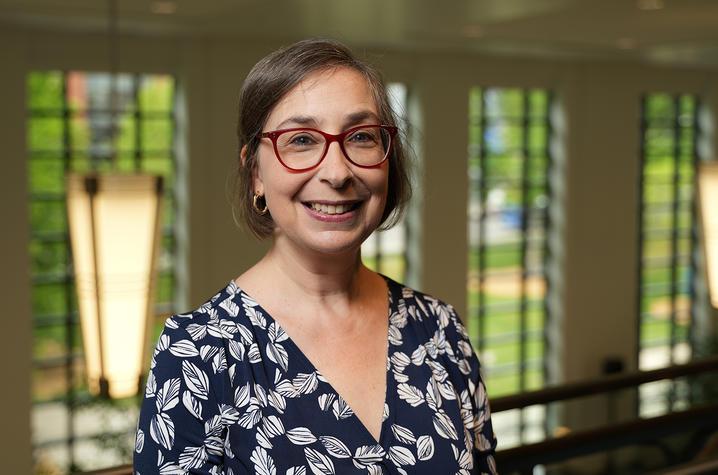
LEXINGTON, Ky. (July 7, 2023) — Ann Morris, a professor in the Department of Biology in the College of Arts and Sciences at the University of Kentucky, is one of 16 University Research Professors for 2023-24.
The University Research Professorships honor faculty members who have demonstrated excellence that addresses scientific, social, cultural and economic challenges in our region and around the world.
College leadership develop criteria for excellence within their area of expertise and then nominate faculty who excelled at these criteria. Each University Research Professor receives a one-year award of $10,000.
"I’m honored to receive this recognition from the university, and excited to engage with my fellow research professors over the coming year and to learn more about their work," Morris said. "I would also like to express my gratitude to the biology department and the College of Arts and Sciences for their continual support of our research program. Finally, I am especially indebted to all the members of the Morris lab, past and present, for their commitment to our lab’s research goals, their hard work, and their scholarship; I am very proud and thankful to have the opportunity to work with these outstanding scientists.”
Morris’ research explores the genetic pathways that control the development and regeneration of vertebrate vision.
Morris' lab studies zebrafish: small, minnow-like fish with eyes that form similarly to humans during embryonic development. Unlike humans, however, zebrafish have the ability to regenerate retinal cells following an injury. In humans, photoreceptor degeneration associated with ocular diseases such as retinitis pigmentosa (RP), macular degeneration and diabetic retinopathy is a significant cause of visual impairment and blindness, for which there is currently no cure.
By unraveling the molecular mechanisms of photoreceptor development and regeneration in animals like zebrafish, Morris and her team are seeking ways to improve therapeutic strategies for treating retinal degenerative diseases in humans.
Morris, who came to UK in 2009, is an established leader in UK's Department of Biology, previously serving as associate chair and interim chair. In 2018, she received $1.87 million from the National Institutes of Health (NIH) to support her research in retinal development and regeneration.
Morris is the recipient of the Pew Foundation’s Biomedical Scholar award from 2011-2015 and has received grants from the Fight for Sight Foundation, the Knights Templar Eye Foundation, the CHARGE Syndrome Foundation, and the Retina Research Foundation for her work.
As the state’s flagship, land-grant institution, the University of Kentucky exists to advance the Commonwealth. We do that by preparing the next generation of leaders — placing students at the heart of everything we do — and transforming the lives of Kentuckians through education, research and creative work, service and health care. We pride ourselves on being a catalyst for breakthroughs and a force for healing, a place where ingenuity unfolds. It's all made possible by our people — visionaries, disruptors and pioneers — who make up 200 academic programs, a $476.5 million research and development enterprise and a world-class medical center, all on one campus.
In 2022, UK was ranked by Forbes as one of the “Best Employers for New Grads” and named a “Diversity Champion” by INSIGHT into Diversity, a testament to our commitment to advance Kentucky and create a community of belonging for everyone. While our mission looks different in many ways than it did in 1865, the vision of service to our Commonwealth and the world remains the same. We are the University for Kentucky.
